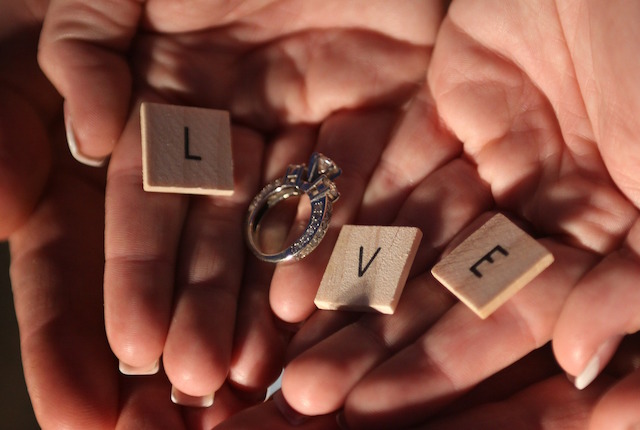By Michelle Crichton :: Websters Lawyers
He proposed. You said yes. He put a ring on it; a two carat diamond sparkler and it was amazing. But when the relationship broke down and the engagement ended, you decided to keep the ring. After all, it was a gift, so why not?
It seems fairly straightforward, but sometimes, an engagement ring can cause all sorts of legal wrangling and confusion.
If you were Mariah Carey, you’d hang onto that $10 million, 35 carat extravaganza without giving a second thought to whether Jamie Packer might want it back. You’d also be wearing it post-engagement while you contemplated having it reset into a diamond necklace. But for anyone who isn’t a platform heeled songstress famous for 24 carat gold spray tans, the question of who can keep an engagement ring is not necessarily straightforward.
Breach of promise
Marriage laws used to allow a person to take legal action for breach of promise. However, in Australia, those laws have long been abolished and so a person can’t be sued for failing to marry their betrothed.
However, it doesn’t stop legal action being taken for recovery of gifts that were bought in contemplation of marriage, for example, an engagement ring.
But it’s not that simple because when a gift is given to a person, the right to take legal action to recover the gift (or the value of the gift) usually is extinguished.
Gifts
The key to the issue is whether the ring can be considered a gift. A gift is the opposite of a contract and so it helps to understand a little bit about how the law of contract operates. There is a contract between two people if:
:: There is agreement.
:: There is an intention that the agreement be legally binding.
:: There is an exchange of something of value (usually money), known as “consideration”.
But a gift is given without receiving anything in return, or without the expectation of receiving anything in return. It is gratuitous.
An engagement ring is usually thought of as being a gift because it is given freely and gratuitously. The person giving the gift gives up all ownership of the gift.
But sometimes, a gift may be given conditionally. For example, an engagement ring may be given on the condition that the couple marry. If they do not, it must be given back.
And so it seems that legal action for recovery of an engagement ring would be successful only if the engagement ring was given conditionally upon the parties actually marrying. And there would have to be evidence to prove this, for example, a written agreement or witnesses to a verbal agreement. It doesn’t sound very romantic, does it? This is precisely the reason that we don’t often see legal action being taken to recover a conditional gift. Usually, an engagement is a product of love between two people. It’s not something that is more like a business transaction in which the parties enter into a legally binding contract to marry each other.
Domestic partnerships (including de facto relationships)
Suppose that you’ve been living with your partner for two or more years. Suppose that during that time you become engaged and then the relationship breaks down. This brings into play property issues that you need to consider.
Once you have been living with your partner for 2 years, you both have rights to make a claim on the property of the relationship, including any property that either of you owned before or during the relationship.
This can include an engagement ring. While the reality is that most engagement rings are not valuable enough to be included in a property pool (except for Mariah’s ring), it’s worth remembering that if there’s a dispute over who gets what, no one can claim ownership of the ring unless the Family Court makes a decision about it, or unless the parties can negotiate a resolution. For example, you may be able to agree with your ex that you get to keep the ring but he gets custody of the dog.
In the end, it’s a question of how much the ring is worth, or whether its only value is sentimental.
Legal or moral issue?
Whether an engagement ring should be returned usually will be a moral issue rather than a legal issue. It’s a question of whether you are justified in keeping the ring or whether your ex is justified in seeking its return.
Mariah obviously felt that she was morally entitled to keep her engagement ring. Perhaps James agreed with her – who knows? It’s one of those things that can only really be assessed by the two people who were in the relationship, unless they’re willing to put matters in the hands of their lawyers and the Family Court.
The breakdown of any relationship can be difficult, but when there’s a dispute over property, it can be even more stressful. This can also be true of a broken engagement and disagreement over who gets the ring. If you are concerned over your rights to keep an engagement ring, it’s worth getting advice from an experienced lawyer who can assess your unique situation and work out how the law applies to you.
Contact us today for a free first interview to find out how we can help you.
This article provides general information only. For advice specific to your needs, you should consult a lawyer.










